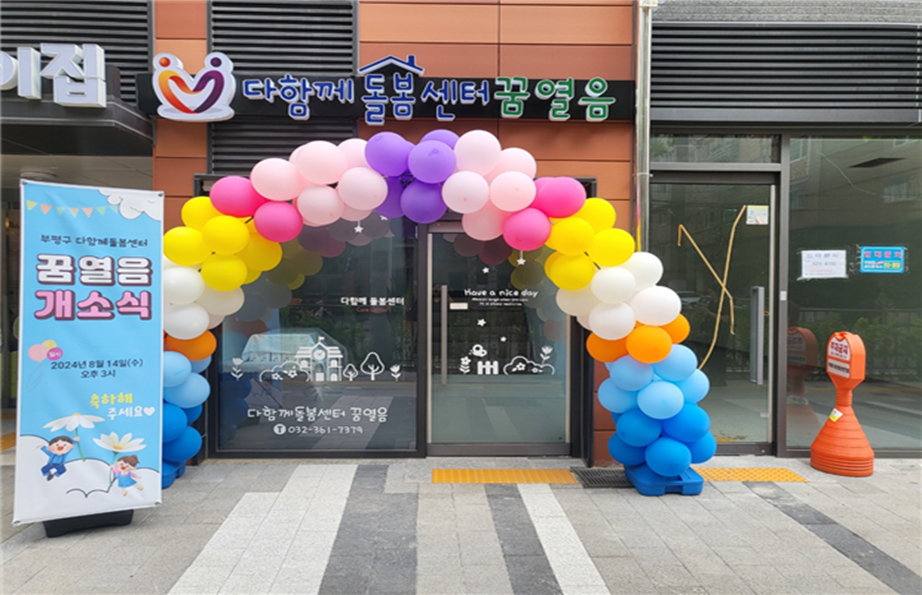- Actively supporting work-life balance with customized childcare services for elementary school children -
- Meeting childcare needs in population declining areas by operating community-based "All Together Care Centers" -
Incheon Metropolitan City (Mayor Yoo Jeong-bok) is implementing customized gap care support projects to address childcare gaps for elementary school children.
Incheon City plans to provide night and weekend care, as well as care for sick children, to ensure continuous care for elementary school children. The city also plans to operate community-based "All Together Care Centers" in its older districts.

Opening of "All Together Care Centers"
Starting in the second half of this year, Incheon will create rest areas at eight designated All Together Care Centers for sick children and introduce a new bed care service for those who are unwell. In 2025, six additional centers will be established to expand the benefits to reach more children.
From next year, All Together Childcare Centers will provide evening and weekend care with evening services at 9 PM. Incheon plans to expand the program to 10 centers by 2026, beginning with pilot operations at two locations in 2025. Additional funding will be provided to facilities operating extended care to create a stable care environment. The extended sick child care services aim to provide safe care for children in urgent need and actively support guardians in achieving a work-life balance.
This year, Incheon City, in collaboration with Seo-gu, is establishing its first community-based All Together Childcare Center in Seoknam-dong. This center will address the childcare needs of the older districts with declining population, and provide flexible services, including evening, weekend, and sick child care, along with vehicle support.
Si Hyun-jeong, Director of Women and Family Affairs, stated, "We plan to build a comprehensive gap care network, ensuring no care gaps even in urgent or unexpected situations," and added, "Incheon will continue to pursue childcare policies along with various birth promotion policies, such as the 100 Million Plus Child(i)Dream, Incheon's first low birthrate policy, to make Incheon a favorable environment for raising children."